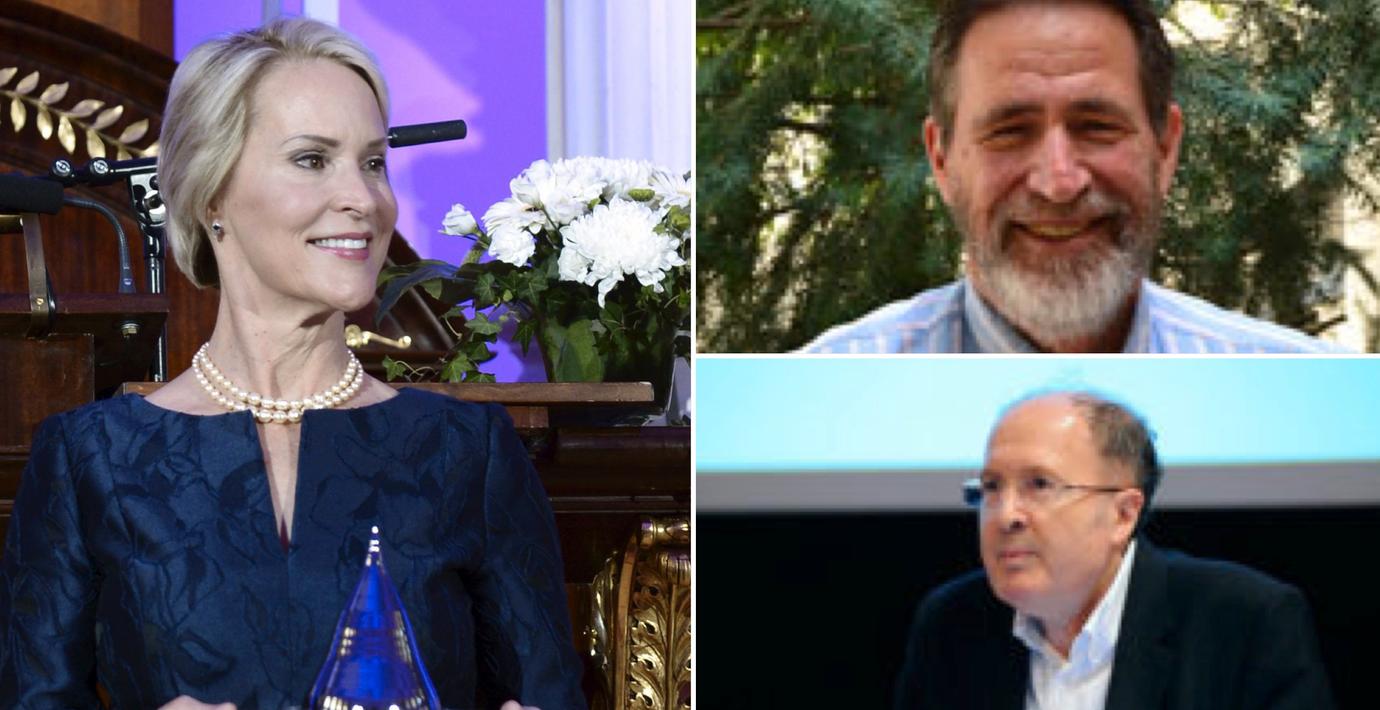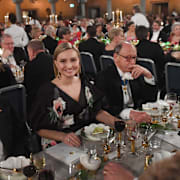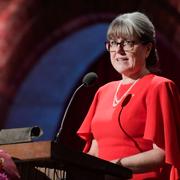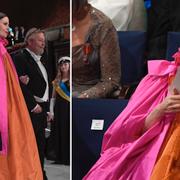
Tre delar på kemipris – ”har tämjt evolutionens kraft”
Nobelpriset i kemi går i år till Frances H Arnold, George O Smith och Gregory P Winter, meddelar Kungliga Vetenskapsakademin. De får priset för att ha ”bemästrat evolutionens kraft”.
Frances H Arnold prisas för sin forskning kring enzymernas evolution, medan George P Smith och Gregory P Winter tilldelas priset för sin forskning inom peptider och antikroppar.
– Förtjänar just jag det här? Det är uppenbart för mig att min forskning bygger på idéer som finns inom fältet, säger George P Smith till Vetenskapsradion.

Kemipriset presenterades av Kungliga Vetenskapsakademien på onsdagen
bakgrund
Frances Arnold
Wikipedia (en)
Frances Hamilton Arnold (born 25 July 1956) is an American scientist and engineer and 2018 Nobel Prize winner for Chemistry. She was awarded the Nobel Prize in Chemistry in 2018. She pioneered methods of directed evolution to create useful biological systems, including enzymes, metabolic pathways, genetic regulatory circuits, and organisms. She is the Linus Pauling Professor of Chemical Engineering, Bioengineering, and Biochemistry at the California Institute of Technology, where she studies evolution and its applications in science, medicine, chemicals and energy. She earned her B.S. in Mechanical and Aerospace Engineering from Princeton University in 1979 and her Ph.D. in Chemical Engineering from the University of California, Berkeley. There, she did her postdoctoral work in biophysical chemistry before coming to Caltech in 1986.
Her work has been recognized by many awards, including the 2011 Draper Prize and a 2013 National Medal of Technology and Innovation. She was elected to the American Academy of Arts and Sciences in 2011. Arnold has the rare honor of being elected to all three National Academies in the United States - The National Academy of Sciences, The National Academy of Engineering, and the Institute of Medicine. Arnold is a Fellow of the American Association for the Advancement of Science, the American Academy of Arts and Sciences, the American Academy of Microbiology, the American Institute for Medical and Biological Engineering and an International Fellow of the Royal Academy of Engineering in the UK.
A member of the Advisory Board of the DOE-funded Joint BioEnergy Institute and the Packard Fellowships in Science and Engineering, Arnold also serves on the President's Advisory Council of the King Abdullah University of Science and Technology (KAUST). She is currently serving as a judge for The Queen Elizabeth Prize for Engineering.
Arnold's Caltech research is in green chemistry and alternative energy, including the development of highly active enzymes (cellulolytic and biosynthetic enzymes) and microorganisms to convert renewable biomass to fuels and chemicals. She is co-inventor on numerous patents and co-founded Gevo, Inc. in 2005.
In 2016 she became the first woman to win the Millennium Technology Prize, which she won for pioneering directed evolution. In 2017, Arnold was awarded the Raymond and Beverly Sackler Prize in Convergence Research by the National Academy of Sciences, which recognizes extraordinary contributions to convergence research. In 2018 she was awarded the Nobel Prize in Chemistry for her work in directed evolution.
bakgrund
George P. Smith II
Wikipedia (en)
George P. Smith, II, is an internationally recognized scholar and lecturer and a Professor Emeritus of Law at The Catholic University of America's Columbus School of Law. The 1996 graduating class of the Columbus Law School selected Professor Smith as the Class Marshall – This, in recognition of the high regard in which they held him. In a rich career of some fifty years in teaching and in public service—39 years of which were spent at Catholic University—Smith retired from active teaching in 2016. Since 1977, he has taught courses in Property Law, Land Use, Environmental Law, Bioethics, and Public Health Law. His path-breaking scholarship in 1968 on artificial insemination and the law established him as an early insightful frontiersman in the then-emerging field of Bioethics or Law, Science and Medicine. Today, Professor Smith continues his scholarly research and writing in the field of International Human Rights at the Indiana University Institute of Advanced Study as a Residential Fellow.
bakgrund
Greg Winter
Wikipedia (en)
Sir Gregory Paul Winter (born 14 April 1951) is a British biochemist, a pioneer of therapeutic monoclonal antibodies and Nobel laureate. He invented techniques to both humanise (1986) and, later, to fully humanise using phage display, antibodies for therapeutic uses. Previously, antibodies had been derived from mice, which made them difficult to use in human therapeutics because the human immune system had anti-mouse reactions to them.
He is a Fellow of Trinity College, Cambridge and was appointed Master of Trinity College, Cambridge on 2 October 2012. He was previously Deputy Director of the Laboratory of Molecular Biology, Medical Research Council, and Head of the Division of Protein and Nucleic Acids Chemistry.
Omni är politiskt obundna och oberoende. Vi strävar efter att ge fler perspektiv på nyheterna. Har du frågor eller synpunkter kring vår rapportering? Kontakta redaktionen



